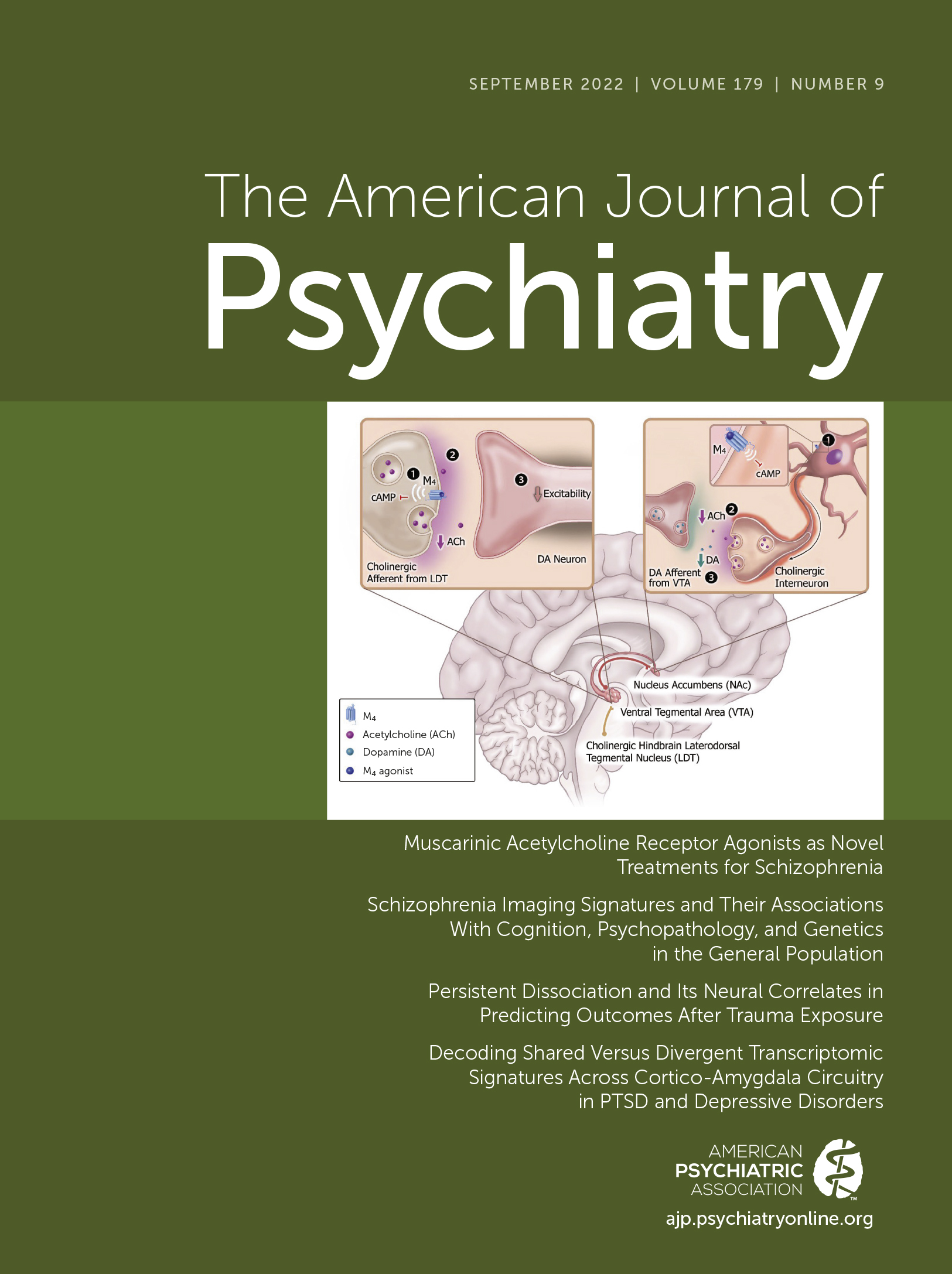Psychotherapy’s Role for Treatment-Resistant Depression: Reply to Bartova et al.
To the Editor: We thank Dr. Bartova and colleagues for presenting their articles, which contribute to the treatment-resistant depression (TRD) literature in part by considering candidate genes and employing machine learning. To be fair, however, their negative data for the addition of psychotherapy to medication for TRD derive from a large, but cross-sectional, naturalistic, observational study of patients in clinical practice, not from a randomized controlled longitudinal trial. Only 41% of their sample reported TRD. The authors measured outcome at 4 weeks, too brief an interval for a psychotherapy trial. Eleven percent of the sample reported psychotic symptoms, which these psychotherapies do not address. Moreover, some of the included psychotherapies may have been manual-driven but were (as the authors knew) not evidence-based treatments for depression. The authors do not mention the duration of psychotherapies, or use of any therapist adherence measure (1).
The interpretation of naturalistic observational outcome data carries perils. Perhaps unsurprisingly, the recent network meta-analysis by Cuipers et al. cited in our commentary found randomized trial results contradicting those of the Bartova et al. report. Combined pharmacotherapy and psychotherapy were more effective than pharmacotherapy or psychotherapy alone in producing significant treatment response or remission. Further, patients found combined treatment or psychotherapy alone more acceptable than pharmacotherapy alone.
The tone of Bartova and colleagues’ letter unfortunately epitomizes the narrow, ideological therapeutic sectarianism that has characterized most definitions of TRD and that our article took pains to dissolve. The question is not whether one treatment is “superior” to another, but how to strike a balance across available modalities to ensure superior outcomes for patients. Different patients are likely to respond to different modalities, and the TRD literature has largely neglected the important resource of evidence-based psychotherapies for TRD. We did highlight potential advantages of psychotherapies for certain patients; we never suggested that psychotherapy would be “superior” for all. Nor did we propose, as Bartova et al. do, that one modality “more appropriately and effectively” treats TRD than another. It’s not a competition, and researchers and clinicians need to check their therapeutic biases (2). Let us not refight the partisan psychiatric treatment culture wars of the later 20th century, when one had to choose one’s therapeutic camp (3).
1. : Combining psychopharmacotherapy and psychotherapy is not associated with better treatment outcome in major depressive disorder - evidence from the European Group for the Study of Resistant Depression. J Psychiatr Res 2021; 141:167–175Crossref, Medline, Google Scholar
2. : Can psychotherapists function as their own controls? Meta-analysis of the crossed therapist design in comparative psychotherapy trials. J Clin Psychiatry 2013; 74:482–491Crossref, Medline, Google Scholar
3. : Do psychotherapy and pharmacotherapy for depression conflict? Empirical evidence from a clinical trial. Arch Gen Psychiatry 1981; 38:24–29Crossref, Medline, Google Scholar



